Recent Blog Posts
U.S. Suspends Immigrant Visa Processing for 75 Countries
 On January 14, 2026, the U.S. State Department announced a major change that will affect thousands of families waiting for immigrant visas. Starting January 21, the United States is suspending the final issuance of immigrant visas for applicants from 75 countries. This pause affects people from Latin America, Africa, the Middle East, South Asia, and the Caribbean who are trying to immigrate permanently to the United States.
On January 14, 2026, the U.S. State Department announced a major change that will affect thousands of families waiting for immigrant visas. Starting January 21, the United States is suspending the final issuance of immigrant visas for applicants from 75 countries. This pause affects people from Latin America, Africa, the Middle East, South Asia, and the Caribbean who are trying to immigrate permanently to the United States.
If you or your family members are from one of the affected countries and have been waiting for an immigrant visa, this suspension creates immediate uncertainty. The pause does not close the border or stop all immigration processing, but it does freeze the final step that allows approved applicants to receive their visas and enter the United States.
5 Common Mistakes in Green Card Applications
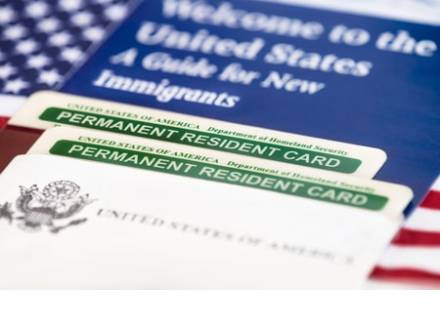 Applying for a green card in 2026 requires very careful attention to detail. The process involves multiple forms, strict deadlines, and specific documentation. A single mistake can result in a denial of your application, forcing you to start over and pay additional fees.
Applying for a green card in 2026 requires very careful attention to detail. The process involves multiple forms, strict deadlines, and specific documentation. A single mistake can result in a denial of your application, forcing you to start over and pay additional fees.
Thousands of green card applications are rejected each year because of preventable errors. Understanding the most common mistakes can help you avoid delays and increase your chances of approval. If you are applying for lawful permanent residency, working with a skilled Plano green card attorney is a smart choice.
What Are the Most Common Mistakes in Green Card Applications?
Incomplete or Inaccurate Information
Some applicants, particularly those for whom English is a second language, struggle with providing complete and accurate information. This may be because:
What To Know About USCIS Requests for Evidence in 2026
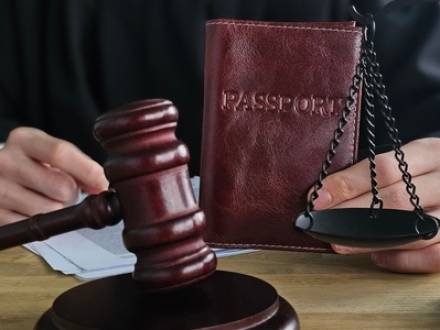 If you receive a Request for Evidence (RFE), it does not automatically mean your immigration case will be denied. An RFE means U.S. Citizenship and Immigration Services (USCIS) needs more information before making a decision.
If you receive a Request for Evidence (RFE), it does not automatically mean your immigration case will be denied. An RFE means U.S. Citizenship and Immigration Services (USCIS) needs more information before making a decision.
In 2026, RFEs remain common across many application types, and how you respond can directly affect the outcome of your case. If you have questions about an RFE, our Dallas, TX immigration lawyer can help you understand what USCIS is asking for and how to respond properly.
What Is a Request for Evidence From USCIS?
An RFE is a formal notice sent by USCIS when an application or petition is missing information, contains inconsistencies, or needs clarification. USCIS issues RFEs under its general authority to request additional documentation, including under 8 C.F.R. § 103.2(b)(8), which allows officers to seek more evidence before approving or denying a case.
Texas Families Impacted by Pause on 19-Country Immigration
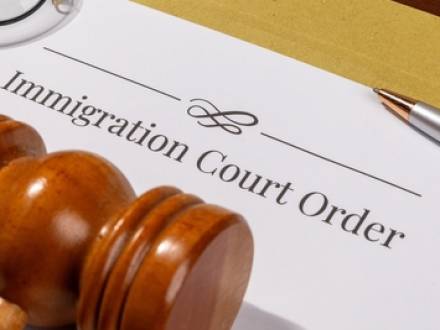 On December 3, 2025, immigration applications from 19 countries subject to a travel ban were paused indefinitely. The administration claimed the pause was due to national security concerns. The policy memo posted to the website of US Citizenship and Immigration Services (USCIS) also placed an immediate "adjudicative hold" on all asylum applications, regardless of the person’s nationality, and directed a review of "high-risk countries of concern" admitted after January 20, 2021.
On December 3, 2025, immigration applications from 19 countries subject to a travel ban were paused indefinitely. The administration claimed the pause was due to national security concerns. The policy memo posted to the website of US Citizenship and Immigration Services (USCIS) also placed an immediate "adjudicative hold" on all asylum applications, regardless of the person’s nationality, and directed a review of "high-risk countries of concern" admitted after January 20, 2021.
The administration also stated that "anyone who is not a net asset to the United States" would be removed. This news sent shockwaves through many Texas communities. Families who were already navigating the long, stressful immigration process now face considerably more uncertainty.
Stalled case updates, sudden eligibility questions, concerns about whether loved ones will reach the U.S., and worries about whether those already here will be forced to leave are all likely. Employers sponsoring workers, Texans with immigrant relatives, or individuals waiting on consular processing must understand what this new "pause" actually means. An experienced Dallas, TX immigration attorney is ready to help you understand your best path forward.
Texas County Border Resolutions Affect Mixed-Status Families
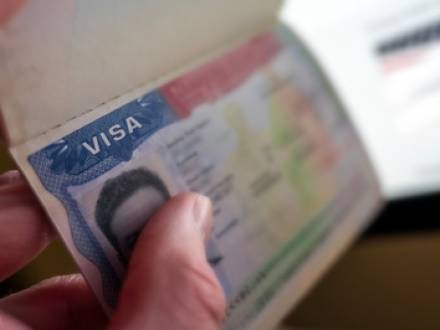 Across Texas, counties are increasingly adopting "border security" resolutions or participating in enforcement efforts. These efforts are expanding immigration-related activities into local jurisdictions. While most attention focuses on state and federal immigration, county actions can have immediate consequences for mixed-status families. A mixed-status family means some family members are U.S. citizens or lawful residents, while others are undocumented.
Across Texas, counties are increasingly adopting "border security" resolutions or participating in enforcement efforts. These efforts are expanding immigration-related activities into local jurisdictions. While most attention focuses on state and federal immigration, county actions can have immediate consequences for mixed-status families. A mixed-status family means some family members are U.S. citizens or lawful residents, while others are undocumented.
This increased local enforcement, along with shifts in county sheriff department priorities and formal cooperation with federal agencies, can threaten family unity. Understanding how these resolutions work and how they can impact mixed-status households is critical. Speaking to a knowledgeable Dallas, TX immigration attorney can help you determine what you can do now to protect your family and your future.
DACA Recipients in Texas May Have Work Permits Revoked
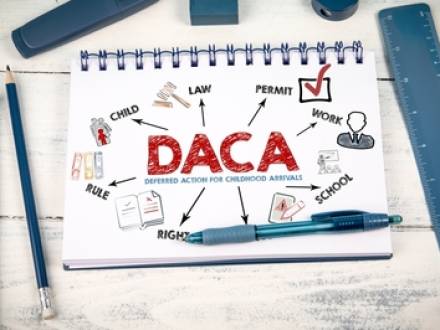 As immigration laws continue to change almost weekly, a new proposal from the current administration could strip more than 86,000 Texas DACA recipients of their work permits. DACA recipients, also known as "Dreamers," have been a part of a years-long battle between Obama-era programs and the Trump administration. Now, it is looking like these DACA recipients may have no choice but to leave their homes in Texas and move to a state where they are allowed to work and make a living.
As immigration laws continue to change almost weekly, a new proposal from the current administration could strip more than 86,000 Texas DACA recipients of their work permits. DACA recipients, also known as "Dreamers," have been a part of a years-long battle between Obama-era programs and the Trump administration. Now, it is looking like these DACA recipients may have no choice but to leave their homes in Texas and move to a state where they are allowed to work and make a living.
Judge Andrew Hanen, a U.S. District Court judge, will soon rule on a proposal submitted by the current administration that could render Texas DACA recipients ineligible for work permits typically offered under former DACA rules. If you find yourself in this untenable situation – potentially forced to move your family to a state that will let you work – it is time to speak to a knowledgeable Plano, TX immigration lawyer.
Texas and the End of TPS for Venezuelans: What Happens Now
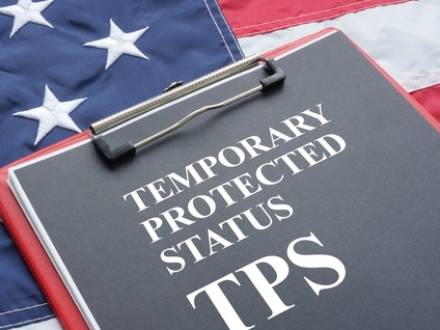 Immigration laws and issues appear to be in a state of constant flux. TPS holders are feeling those changes – and not in a good way. In early October, the Supreme Court of the United States granted an emergency request by the current administration to end Temporary Protected Status (TPS) for more than 300,000 Venezuelans currently living and working in the United States. The administration has also significantly scaled back the TPS program for countries such as Honduras, Nicaragua, and Nepal.
Immigration laws and issues appear to be in a state of constant flux. TPS holders are feeling those changes – and not in a good way. In early October, the Supreme Court of the United States granted an emergency request by the current administration to end Temporary Protected Status (TPS) for more than 300,000 Venezuelans currently living and working in the United States. The administration has also significantly scaled back the TPS program for countries such as Honduras, Nicaragua, and Nepal.
Texas ranks second in the U.S. for the number of Venezuelan TPS holders, particularly in the Houston, Dallas, and San Antonio metro areas. Ending the TPS program for Venezuelans will likely have a significant impact on the Texas labor market, particularly in healthcare, construction, and logistics, where the majority of these individuals legally worked. If you are losing TPS status, speaking to an experienced Dallas, TX immigration attorney can help you determine what options may be available.
T-Visa Certification in Texas: Working with Prosecutors
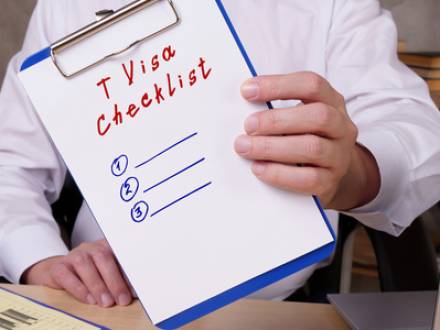 For Texas non-citizen victims of human trafficking, safety and justice may depend on two very different systems working together. The state criminal courts that prosecute traffickers, and the federal immigration system that offers victims protection through a T-Visa, must work in tandem to allow human trafficking victims a safe haven.
For Texas non-citizen victims of human trafficking, safety and justice may depend on two very different systems working together. The state criminal courts that prosecute traffickers, and the federal immigration system that offers victims protection through a T-Visa, must work in tandem to allow human trafficking victims a safe haven.
The T-Visa (Form I-914) allows specific trafficking victims to remain in the U.S., obtain authorization to work, and eventually apply for a green card. However, proof that a person was the victim of trafficking and cooperated fully with law enforcement often originates from Texas police reports and court proceedings.
Coordinating these records can make or break a T-Visa case, and with the constant changes to immigration laws under the current administration, it is essential to have an experienced Plano, TX immigration lawyer.
Employers Beware: $100K H-1B Application Fee Explained
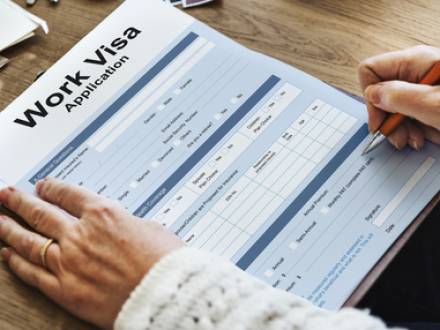 The current administration recently imposed a $100,000 fee on H-1B visas in an effort to curb what it says is an "overuse" of the program. White House officials claim this new measure will incentivize companies to employ more American workers. A separate order established a new "gold card" immigration pathway that fast-tracks visas for specific immigrants in exchange for a staggering $1 million fee – or $2 million for a company sponsor.
The current administration recently imposed a $100,000 fee on H-1B visas in an effort to curb what it says is an "overuse" of the program. White House officials claim this new measure will incentivize companies to employ more American workers. A separate order established a new "gold card" immigration pathway that fast-tracks visas for specific immigrants in exchange for a staggering $1 million fee – or $2 million for a company sponsor.
The $100,000 fee for H-1B visas will almost certainly have a significant impact on industries that heavily rely on H-1B workers. Immigration policies are changing rapidly; those who want to come to the U.S. legally require a legal advocate who keeps up with all these changes. If you were planning on obtaining an H-1B visa, a Plano, TX immigration lawyer can help you understand how these new rules may affect you.
Driving Without a License: Immigration Consequences in Texas
 For many undocumented immigrants in Texas, the everyday tasks that many of us take for granted (driving to work, taking our children to school, running errands) can come with significant legal risks. Unlike some states (like Illinois), Texas does not issue driver’s licenses to undocumented residents.
For many undocumented immigrants in Texas, the everyday tasks that many of us take for granted (driving to work, taking our children to school, running errands) can come with significant legal risks. Unlike some states (like Illinois), Texas does not issue driver’s licenses to undocumented residents.
This leaves thousands of working people with a tough choice: risk driving without a license or struggle to survive without being able to drive. Driving without a driver’s license in Texas as an undocumented immigrant is much more serious than a mere traffic violation. You can be criminally charged and face jail time, as well as serious immigration consequences, including deportation.
If you do not have lawful status in the United States, it is crucial that you understand how a simple traffic stop can quickly spiral into an immigration nightmare. It can be beneficial to consult with an experienced Plano, TX family immigration lawyer before you find yourself in such an untenable situation.






